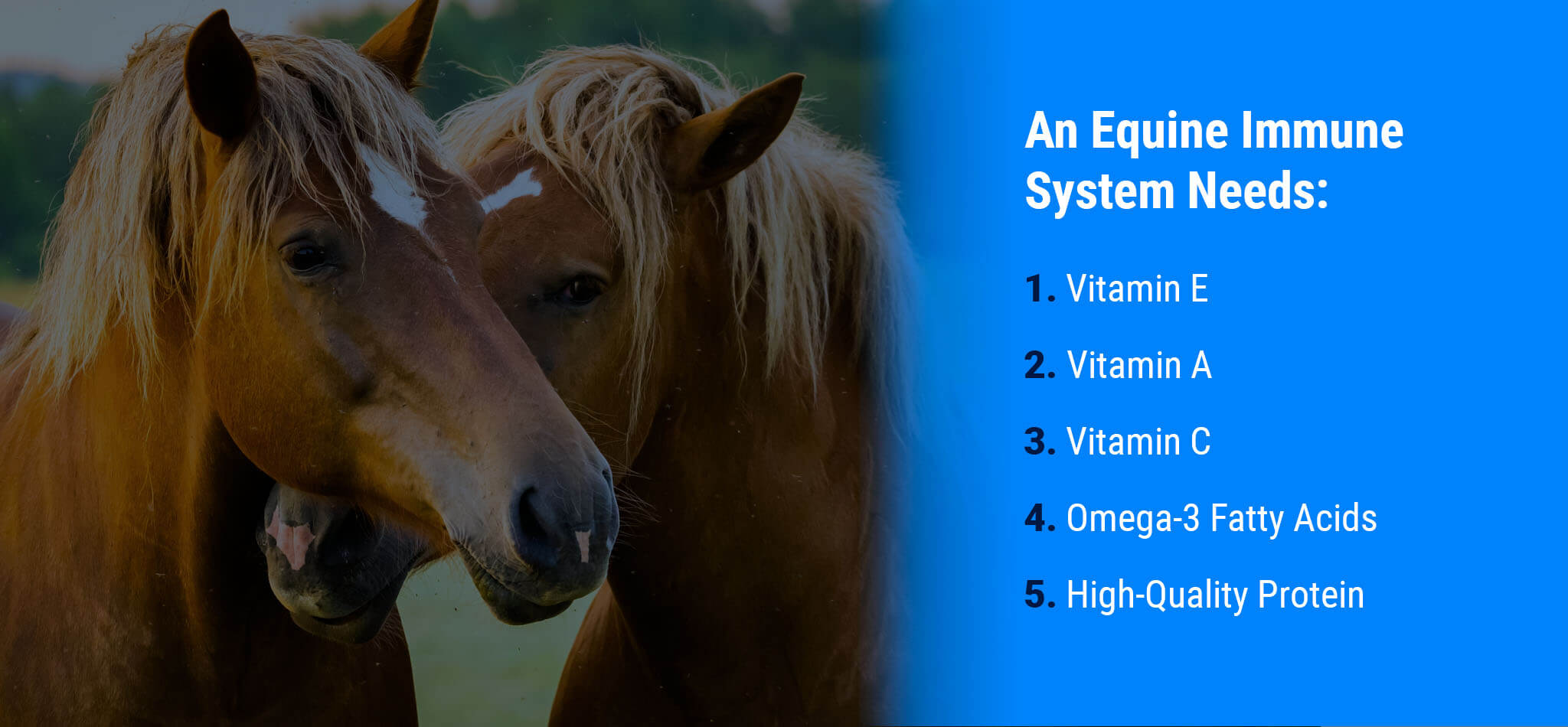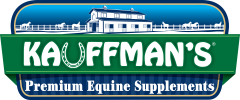The Importance of Immune Health in Horses
In humans and horses, the immune system works to promote normal health on a daily basis. Your horse’s immune system protects normal bodily functions and strives for a natural state of health. Understanding your horse’s immune system and what it needs can help you promote its function to the fullest.
Table of Contents
- The Equine Immune System
- What Does the Equine Immune System Need?
- Maintaining a Healthy Equine Immune System
- Supporting Immune Health in Your Horse
The Equine Immune System
Several organs and cell types work together to form the immune system. An important player is white blood cells. White blood cells come from the thymus gland and bone marrow. These cells employ three main tools to complete their duties, including:
- Macrophages
- B-lymphocytes
- T-lymphocytes
As a horse’s immune system works to preserve optimal health, it can improve its tools. The stronger that white blood cells become, the quicker they can perform their duties and maintain full health.
Other key parts of the equine immune system include the spleen, lymph nodes and liver. These organs provide an area for immune system cells to gather and interact with each other when necessary.
Supplemental Immune Measures
Some body parts are not included in the immune system but work alongside it. Physical barriers like a horse’s skin, the cornea of the eye and membranes in other bodily systems work to support a healthy state. A horse’s natural gut flora and other secretions also contain protective enzymes to supplement the immune system.
In addition to physical barriers, horses are born with innate immune responses. The most important response is acute inflammation. This process channels white blood cells to vulnerable tissues to help keep the horse’s body healthy.
Special Circumstances
While fully grown and healthy horses may have strong immune systems, this isn’t the case for foals. In fact, research shows that horses are born with under-developed immune systems. Some portions of the immune system develop during the first three months of a foal’s life and others take a full year to mature.
To maintain optimal health while their immune system develops, foals receive antibodies from their mother’s colostrum. Whether a foal or a matured adult, your horse relies on proper nutrition to support its immune system.
What Does the Equine Immune System Need?

Nutrition helps provide your horse’s immune system with the tools it needs for optimal performance. In ideal situations, horses can consume many of the necessary nutrients through forage in a pasture. Your horse’s immune system relies on a few main nutrients for full health:
- Vitamin E: This antioxidant works to preserve only the healthiest and most helpful cells.
- Vitamin A: This vitamin fortifies a horse’s immune defenses and preserves healthy cells.
- Vitamin C: This vitamin protects healthy cells and restores the liver’s supply of these cells.
- Omega-3 fatty acids: This fatty acid promotes the inflammatory responses that protect a horse’s tissues.
- High-quality protein: Protein delivers the amino acids necessary for antibody productions and tissue repair.
Maintaining a Healthy Equine Immune System
In addition to providing a quality diet, you can help promote your horse’s immune health by providing space and time for regular exercise and creating a calm living environment. These measures work to support your horse’s immune system in different ways. Regular exercise promotes proper blood flow and lymphatic fluid circulation. A calm environment helps the horse maintain a resting state, which allows the immune system to function at full capacity.
Supporting Immune Health in Your Horse
Your horse’s immune system is equipped by design to regulate proper health. These measures can further support its immune system. Immune health can help your horse enjoy a high-quality life and maintain normal performance.
